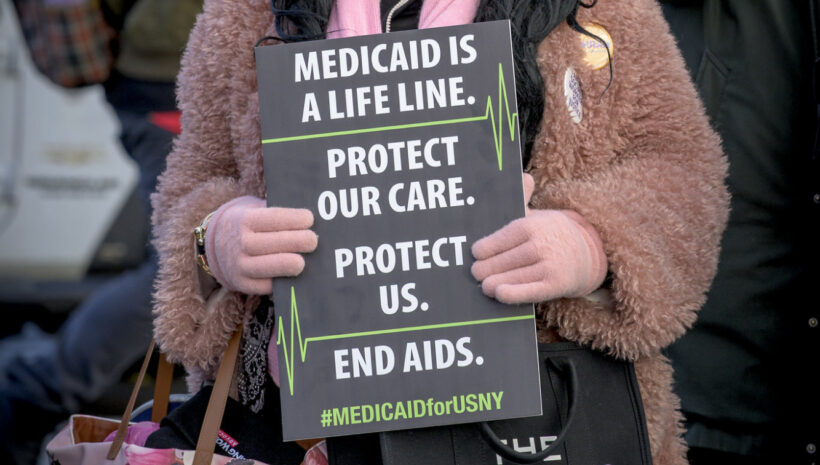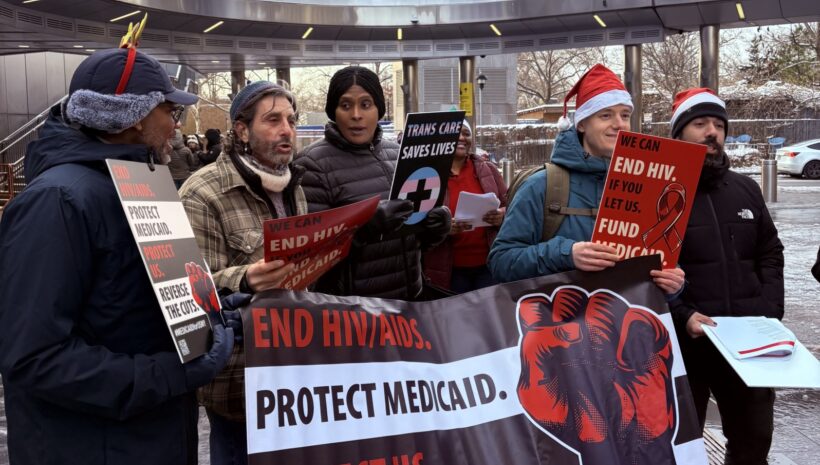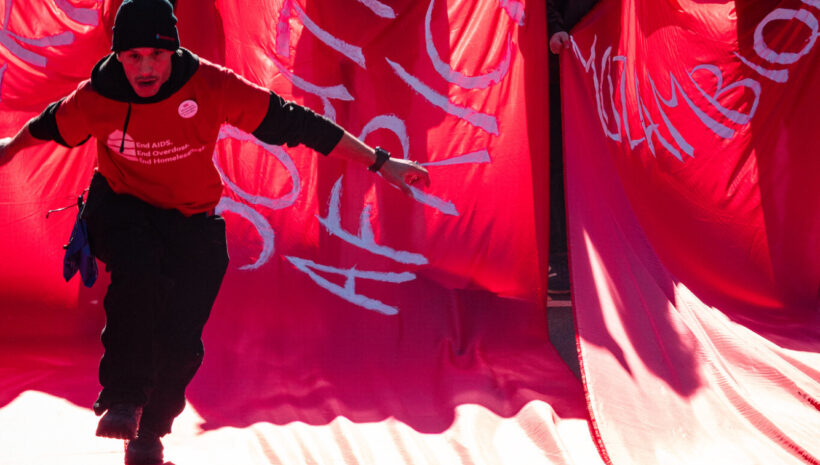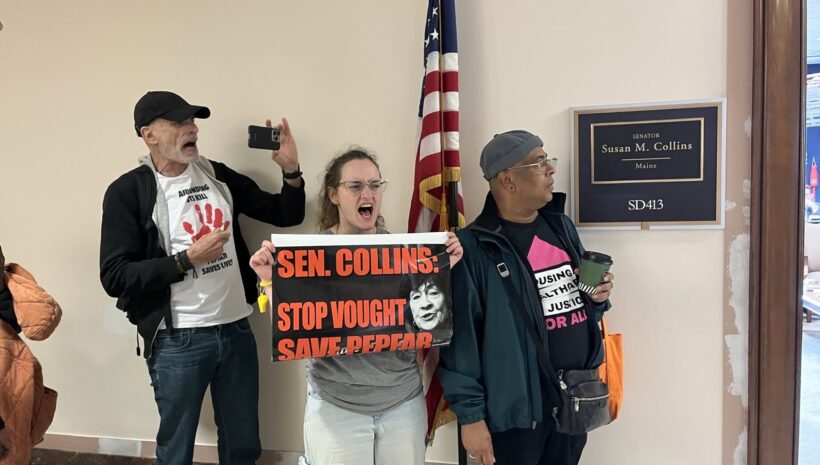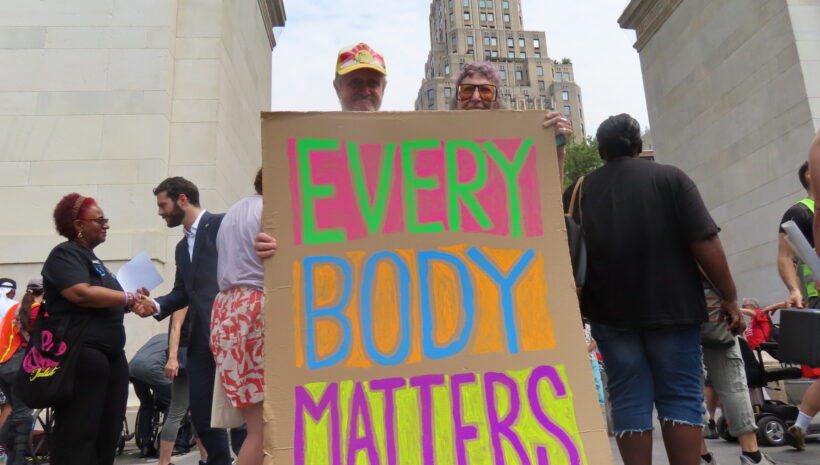Bethany Davison currently works for Housing Works in the Health Services Department as a project coordinator. Under a 2020 grant from the Fore Foundation, The Foundation for Opioid Response Efforts, Davison is working on a toolkit to increase and retain the number of people with an Opioid Use Disorder on Suboxone, a life-saving medication that helps control opioid cravings and reduces the risk for accidental overdoses. She is also organizing a campaign for the month of August called Harm Reduction Month: Love People Who Use Drugs that involves an event series to increase awareness of overdose prevention and harm reduction. Davison has been at Housing Works for the past five years. She originally started out in the Health Home Department as a case manager and supervisor, before spending a year and a half as a therapist until she transitioned into the role of project coordinator. Davison still provides psychotherapy part-time at one of Housing Works’ mental health clinics. Before Housing Works, Davison participated in HIV outreach and education abroad and finished a master’s degree in social work and public health in 2015. Davison is passionate about HIV treatment, sexual health, and harm reduction.
What does advocacy mean for you?
To me, I think it's just fighting, fighting for ideas and people that you believe in, and I think it's finding ways to help struggling communities feel empowered, helping to empower them, and to try to amplify their voices to get what they need, whatever that is. I find myself the most passionate when it's at the individual level, like really advocating on my client's behalf for whatever they need, whether it's, as a licensed therapist, advocating that clients get gender-affirming treatments that they need, or advocating for their legal needs, alternatives to incarceration, whether it be, letter writing, advocating a person’s parole officer, things like that. [Advocating for a client] is one of my favorites, also, because you see more immediate response. It's not always the response you want, but you can problem solve and move forward from there. There's also something to be said for going to a rally or a protest and really feeling the energy of the community and the crowd. You might not see results that day, but ultimately, working together towards a goal of changing policy or changing something that's creating barriers to access is a powerful thing.
Are there any goals that you've set for the campaign this month or any other core principles that you're working around?
One, to increase awareness. Sometimes people don't fully know or understand harm reduction if they don't have a background in it or haven't been educated on it in the past. There's a lot of elements of harm reduction that could contradict what we've been taught in the past, especially if you grew up during the D.A.R.E era or the War on Drugs, so there's a lot of unlearning that comes with that, but then also seeing these evidence-based practices that really work. OPCs would also be great. I'd love to see more people who are struggling with opiate use get on to medication like suboxone because it has been proven to really help people get their life in order in a way that they best see fit, where the disorder isn't taking over their life.
Could you describe what an OPC is and how it is important for harm reduction?
Overdose prevention centers are really a proven medical intervention. They are centers where someone can come in, and they can bring their drugs, and they can use them in a safe space. Let's say someone is using on the street: they're at risk of getting arrested, some form of contamination, overdose, of course. Beyond that, a lot of people who use alone are at a higher risk of overdose, so, if someone's using alone, they can come in and use. There are staff on-site, so one, if an overdose does occur, they can reverse the overdose, and then two, there's also ideally other resources on site: syringes or safer use kits, whatever the person may need, as well as some low threshold therapy or case management. [OPCs have] been peer-reviewed a ton. They've been proven to be extremely effective in reducing overdose-related deaths. [Legislation] was passed in 2015 to get a pilot off the ground in New York City as well as Ithaca, and it still hasn't happened. So, now that [an OPC] was recently approved in Rhode Island, and it seems to be getting up and going, I'm feeling hopeful. I think a lot of states didn't want to be the first one, so hopefully, this will help engender some change. I think we'll see what happens with the governor because that's, I'm sure, going to impact the speed at which we can hopefully get this going.
How does the Health Services Administration practice harm reduction, or how do you plan to practice harm reduction, with the program that you started with the grant?
One issue with suboxone historically is that there's a lot of concern that people [will] sell it for money, or they're not using it, or being nefarious in some way, and oftentimes, it's actually been proven, that oftentimes clients, if they are selling [Suboxone] or giving it away, it's because it's for someone else who's experiencing withdrawal. Suboxone is better than no suboxone because no suboxone means use, which can result in potential contamination with fentanyl, or overdose, or other health risks like HepC. One thing we do at Housing Works is we really try to work with a person if they're struggling with their medication adherence. For example, let's say I have a client who has been abstinent from heroin for a while. I still might give them a Narcan kit to keep at home with fentanyl testing strips, so that if, by some chance, they do relapse, because we know that relapse is part of recovery, that way they have overdose prevention materials with them that hopefully can help save their life.
How does harm reduction help members of our community?
I just think in so many ways. Ultimately, we, in general, in this line of work, need to recognize that just because someone knows something is not good for them doesn't mean they're not going to do that, whether it be drugs or sexual behavior or any type of risky behavior. So, how do we help try to minimize that risk to keep that person going for one more day so that maybe eventually they do get to the point where they're like what? I'm tired. I'm ready to make a change? Really walking alongside them, too, so that when that happens, we're there for that. And if they don't, that's ok too because we are still there to support them no matter what.
How can people practice harm reduction strategies in their own life?
I think that there are so many ways. Again, it depends on where a person is at. If someone is recognizing [that] something isn't serving them in a way that is helpful to their life, but they're not fully ready, for whatever reason, to change, to think, and problem-solve around reducing risk, whatever that might be. PrEP is a great harm reduction example. It doesn't always have to be around drugs. It can be something as simple as changing a habit like drinking coffee since that is a stimulant as well. If you're at 10 cups of coffee a day, and that's making you not feel good, but you feel like you can't quit caffeine—how do you cut down to nine? It takes a level of introspection and insight in being able to determine what's realistic for you. I think the internet is a great way to look up and try to find techniques to incorporate into your own life if you're not able to do that with a therapist or any type of counselor.
Can you share resources for folks who are interested in learning more?
The FORE (Foundation for Opioid Response Efforts), the International Overdose Awareness Website, the work of Dr. Kimberly Sue, the work of Dr. Carl Hart and his book "Drug Use for Grown-Ups: Chasing Liberty in the Land of Fear," and the Harm Reduction Coalition.

